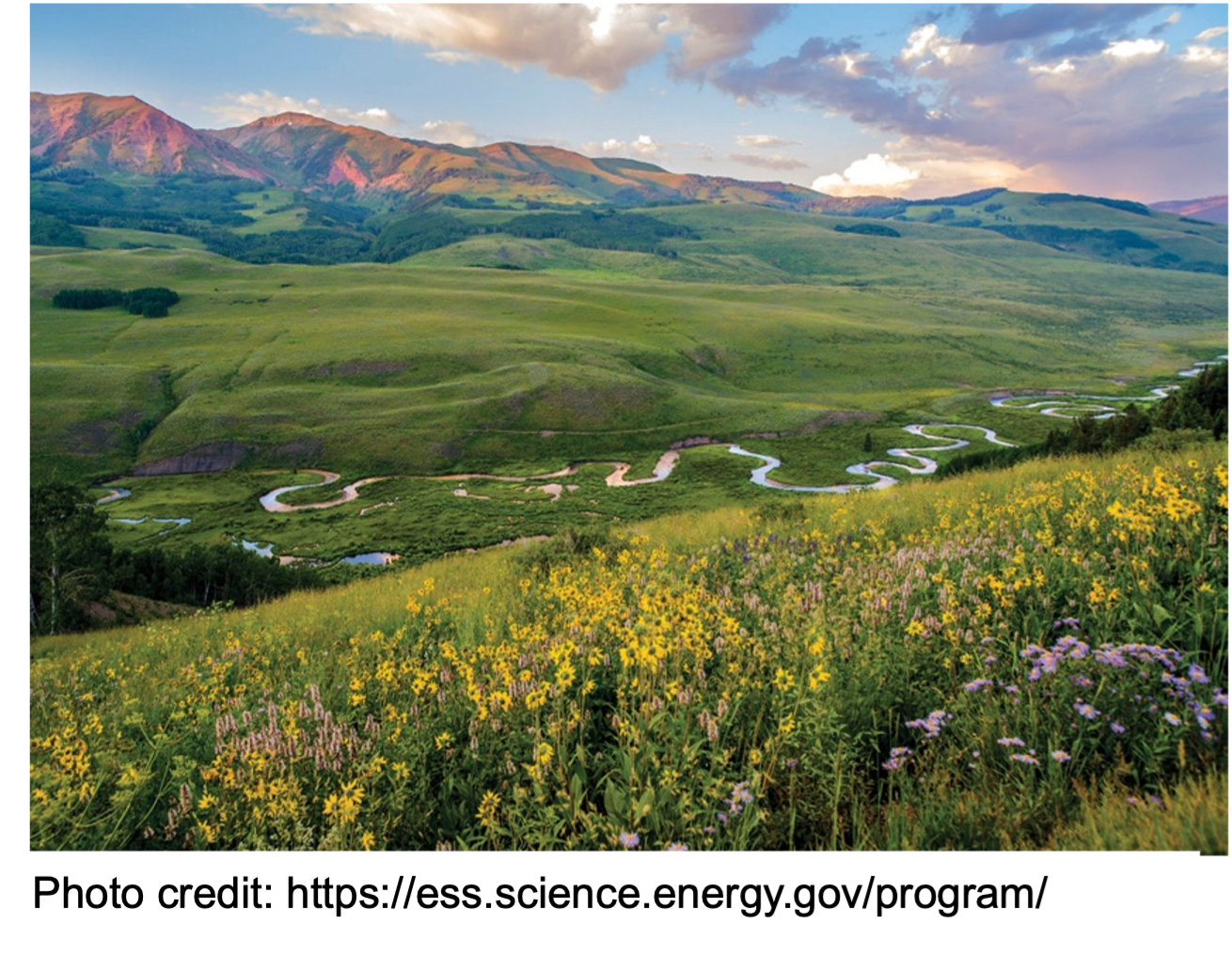Quantitative Environmental Methods: LRES 546
Chapter 1 Introduction
This book provides the materials that we will use in Quantitative Environmental Methods (LRES 546). In this class we will be learning the fundamentals of environmental data analysis and simulation in R.
This class can be taken online or in-person. The online will be asynchronous. As a function of demand, in 2024, this class will be taught online.

Instructor: Dr. Tim Covino
Class times (depending on demand): T 13:40 – 14:55; Th 13:40 – 14:55
- For 2024 the class will be online, asynchronous.
Office hours: By appointment
Email: timothy.covino@montana.edu
TA: Lauren Kremer
Email: lauren.kremer@montana.edu
1.1 Course overview and objectives
provide theoretical understanding and practical experience with common analysis and modeling techniques relevant to watershed hydrology/environmental science.
provide training in analyzing, simulating, and presenting scientific data in written and oral formats.
1.2 Course Description
This course will focus on development of quantitative analysis and modeling skills in watershed and environmental science. Students will develop skills necessary to perform quantitative analyses, describe and evaluate model structure, evaluate the merit of different models of varying type and complexity, and use quantitative analyses to address problems in environmental/watershed science. Students will apply computer programming in R to analyze and simulate watershed and/or environmental dynamics spanning simple to complex processes, analyses, and simulations. Technical skills and conceptual understanding will be built through lectures, readings, and hands-on quantitative projects.
Note: If you aren’t familiar with R, or don’t have coding experience, don’t worry. We will walk you through all of the coding. I hope that by the end of this class each student will be a strong quantitative scientist with equally strong coding skills.
1.3 Structure
This class will utilize hands-on/active learning, and students will be conducting watershed analyses and modeling exercises. We will be doing our analysis and modeling in R and will do some R coding in each class/work session. Programming is best learned by doing it often. Each week there will be recorded videos and/or readings, where we will talk about and work through various types of hydrological analyses. We will then put the content from the recorded lectures to work in a lab where students will complete a variety of hydrological analyses in R. Students can work through material on their schedule, but Dr. Covino and Lauren Kremer (TA) will be available during lab (Thursday 13:40 - 14:55) to help with technical coding problems or to answer other questions on weekly labs.
1.4 Philosophical approach and resources
This course will use all online and open-source resources and will follow FAIR (findability, accessibility, interoperability, and reusability) data principles and promote sharing of hydrological education and research materials. Our computing will utilize open source R and RStudio software.
Books/resources, we may not use all of these, but they are good references:
- R for Data Science
- Statistical Methods in Water Resources
- Tidy modeling with R
- ggplot2: Elegant Graphics for Data Analysis
- Advanced R
- R Packages
- Environmental Data Science
Additional readings will be made available on this bookdown page as needed.
1.5 Tentative schedule, subject to change
Week 1:
- Introduction, overview, and technical skills.
- If you need a refresher for R please see Chapters 1, 2, & 3 1-Welcome, 2-Introduction, & 3-Data visualization in R for Data Science (RDS).
Week 2:
- Hydrograph separation.
Week 3:
Week 4:
- Frequency analysis
Week 5:
- Rational and curve number (CN) methods
Week 6:
- Transfer function lumped hydrological model
Week 7:
- Monte Carlo and sensitivity analysis
Week 8:
- Term project proposal
Week 9: Spring Break
Week 10:
- Snowmelt models
Week 11:
- Gridded and flow data retrieval
Week 12:
- DEM processing and analysis in Whitebox
Week 13:
- Evapotranspiration (ET) models
Week 14:
- HBV model – lumped to semi-distributed modeling
OR
- Precipitation interpolation
Week 15:
- Term project work
Week 16:
- Final presentations